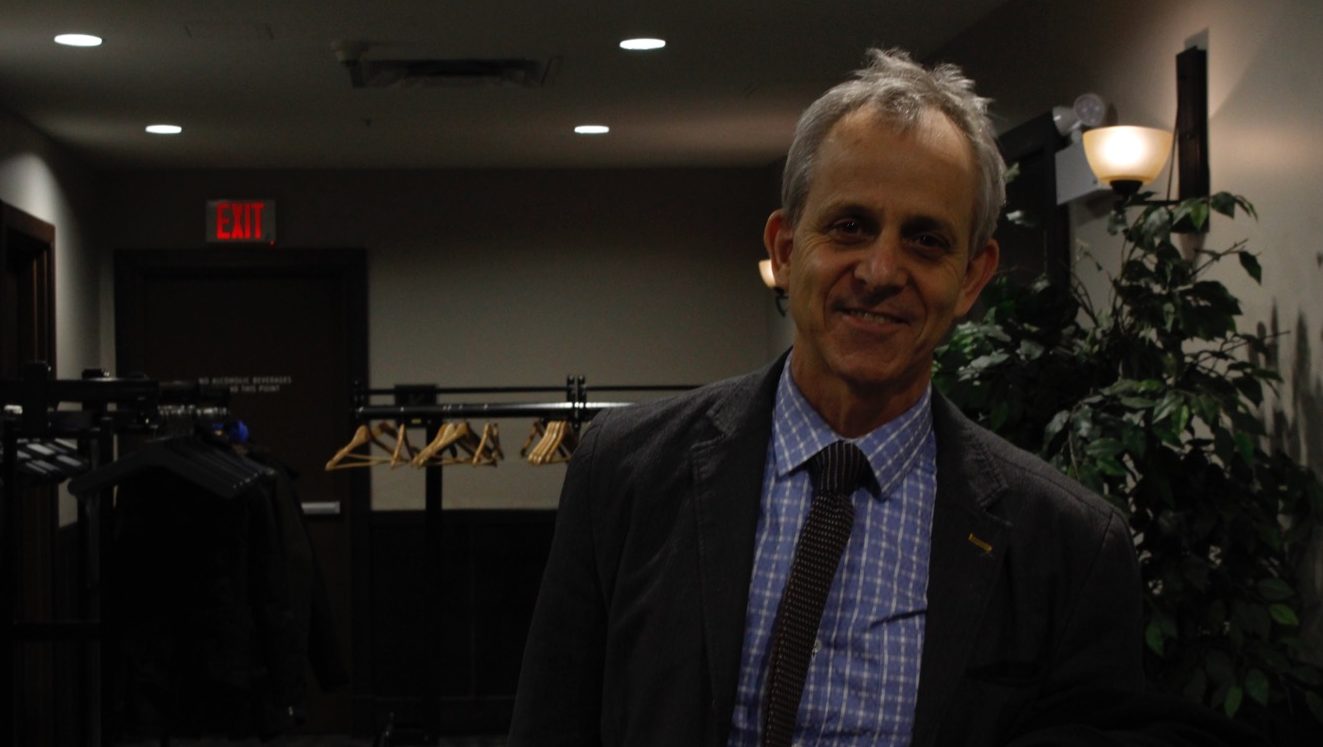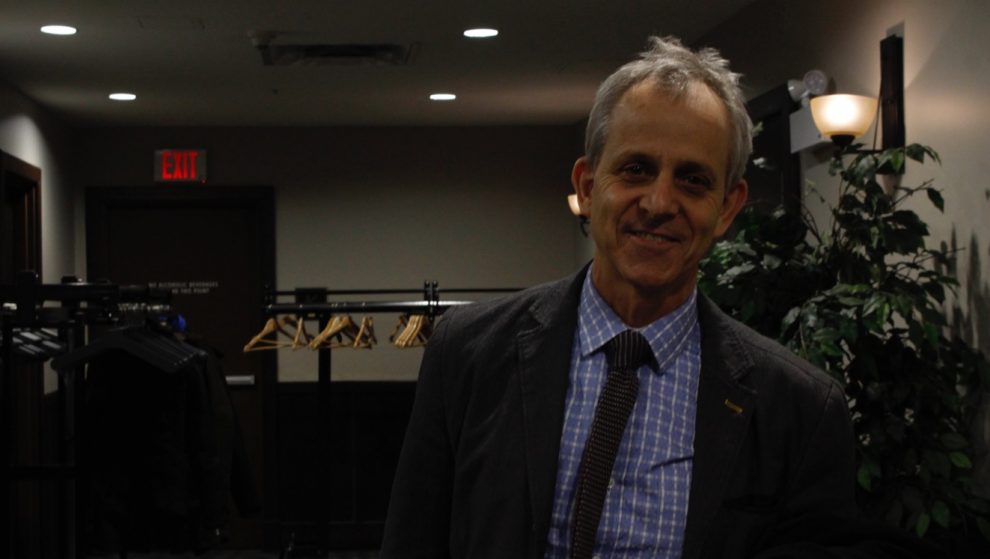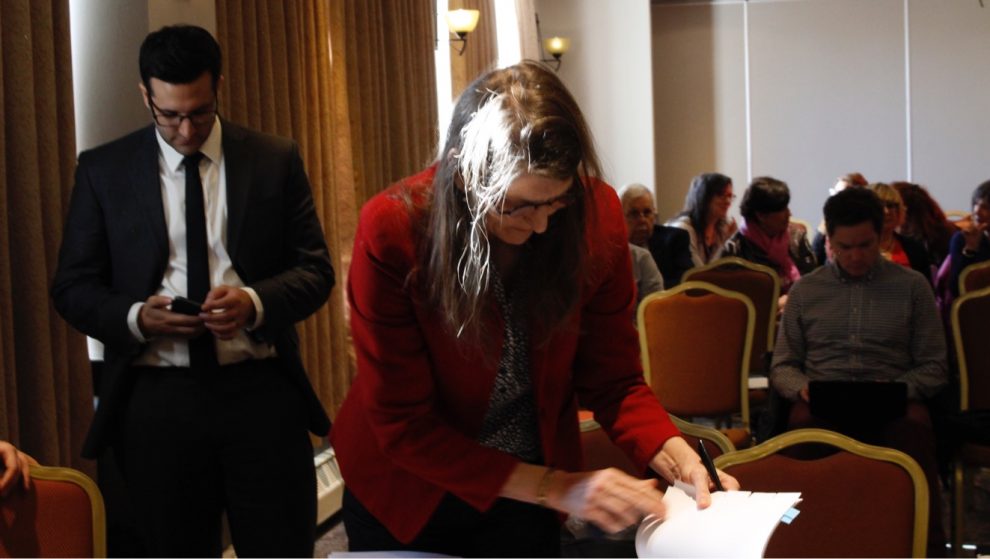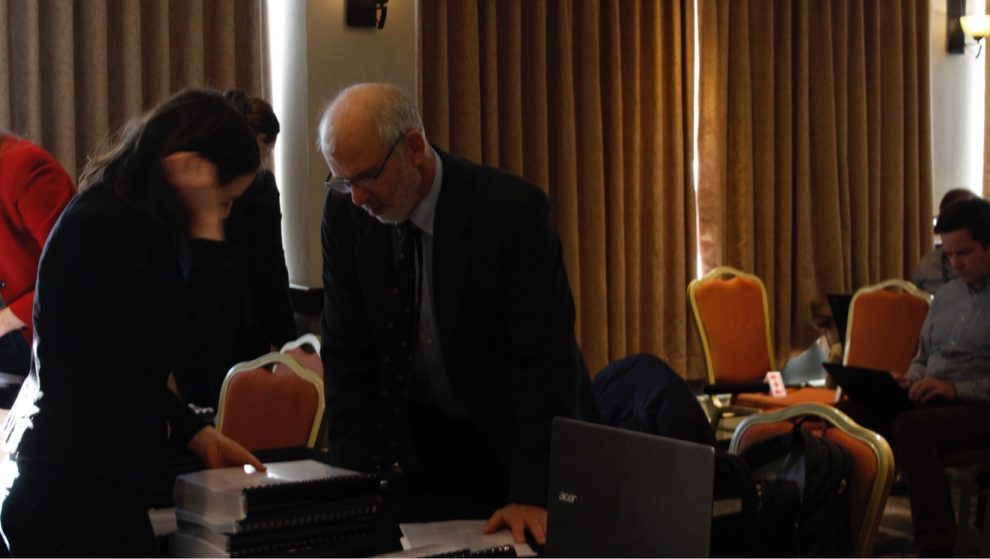Human rights
Expert testifies in disability human rights hearing
Dr. Michael Bach testifies at hearing calling for social homes instead of institutions


caption
Dr. Michael Bach, first witness to testify during human-rights case on Tuesday.A human-rights case entered its second round Tuesday with a specialist arguing that people with disabilities deserve homes in the community rather than institutions.
Dr. Michael Bach took the stand at a human rights hearing in Halifax. He was called as a witness by the Disability Rights Coalition, which advocates for people with disabilities.
Bach shared his opinion on how social housing is better for people with disabilities compared to institutions that make them feel isolated.
Bach is the managing director of IRIS, known as the Institute for Research and Development on Inclusion and Society. In 2012, he was chosen by the NDP government to help create a plan to help people with disabilities. Related stories
Bach examined several reports, including the 2011 Braemore report that found abuse at a facility in Sydney.
“Braemore was not a surprise, it wasn’t seen as the only facility that had a problem … it was the system as a whole,” Bach told the board of inquiry on Tuesday.

caption
Claire McNeil represents the DRC.Lawyer Claire McNeil, representing the Disability Rights Coalition, said having Bach testify provides the board with background information that will help it make a decision in the end.
“He really has a great deal of understanding of the problems faced by people with disabilities,” McNeil said in an interview.
McNeil said many people don’t know that institutions for people with disabilities still exist.

caption
Lawyer Vincent Calderhead, representative of the three complainants.Opening arguments took place on Feb. 5, when lawyer Vincent Calderhead, who represents complainants Beth MacLean, Sheila Livingstone and Joseph Delaney, argued that being hospitalized for “no medical or legal reason” is a human-rights violation.
Small-option homes
Kelly Regan, minister of community services, said the province has committed $4.2 million over two years to build small-option homes.
“At the end of those two years, we’ll go from 222 to 230 homes,” Regan said in an interview Thursday.
Small-option homes are publicly supported accommodations that offer one-on-one support for people with disabilities.
Bruce Nunn, a department spokesman, said the funding was announced in the 2017 provincial budget, but the funding breakdown cannot be finalized until the project has gone through a request for proposals.
Mike Myette, executive director of Housing Nova Scotia, said in an email Monday that it would help improve the quality of life for Nova Scotians living with disabilities.
“People who feel connected with community tend to be happier and healthier due to the benefits of various supports that are available to them,” he said. “By contrast, isolating people in any sort of a closed facility tends to not take advantage of the wealth of resources that are available in the community.”

